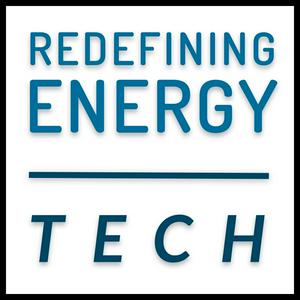50. Geothermal: Drilling for Decarbonization (2/2)
Simon Todd is back with Michael Barnard for part 2/2, and this time he’s drilling deeper—both literally and figuratively. In this second round, the Managing Director of Causeway Energies walks us through the hard tech and hard truths of geothermal energy, especially as it applies to the UK and Ireland. What emerges is a grounded, brutally realistic look at where geothermal works, where it doesn’t, and how to separate serious solutions from science fiction. We kick off with the cross-pollination of oil and gas tech into geothermal—rotary PDC bits, custom drilling muds, and all the bruised geology that comes with punching into granite. The oil patch may be sunsetting, but its tools are still getting a second act. Todd highlights how firms like Fervo are making surgical improvements to geothermal drilling by leveraging fracking's dirty tricks for clean heat, aiming to stimulate natural fractures in hot granite. It's technically elegant, but there’s a catch: the economics are still brutal. EGS systems might sound great on paper, but $150–$250 per megawatt-hour isn’t going to win against wind or solar anytime soon. Todd doesn’t sugarcoat it. The question isn’t if Fervo’s system works—it’s whether it can keep working at nameplate for 25 years straight.He then turns to the UK and Ireland's own geothermal potential. Unlike the flashy volcanic zones of the western U.S. or Iceland, we’re working with Hot Sedimentary Aquifers and radiogenic granites. The geology is less forgiving, but far from useless. Causeway’s bet is on moderate-depth wells—500 to 1,500 meters—which fall into what Todd calls the "Goldilocks zone": hot enough to matter, shallow enough to stay affordable.And this is where Todd really breaks from the crowd. Forget chasing deep geothermal megaprojects with 5 km drill strings and power plant dreams. Causeway Energies has pivoted to something far more practical: industrial heat. About half of emissions are tied to heating, most of it well below 100°C. Modern high-temperature heat pumps—some hitting 150°C—make pairing geothermal with industrial facilities like breweries and hospitals an obvious win. The kicker? These systems offer round-trip efficiencies that embarrass hydrogen and electrify sectors gas can’t reach.One technology worth highlighting here is the Standing Column Well—basically a turbocharged hybrid of open and closed-loop systems that’s 3 to 5 times more thermally potent than your average ground loop. It thrives in fractured aquifers that aren’t fit for drinking water, dodging some of the regulatory red tape. And with a century’s worth of oil and gas borehole data lying around, Causeway has a treasure map to the best locations.Simon Todd isn't pitching geothermal as a silver bullet. He’s carving out a niche: targeted, replicable, cost-effective solutions for decarbonizing industrial heat. It’s not glamorous. It’s not headline-grabbing. But it works. And in the climate transition, that might just be the most disruptive idea of all.Follow the podcast to hear more from the people actually building the energy future, not just imagining it

